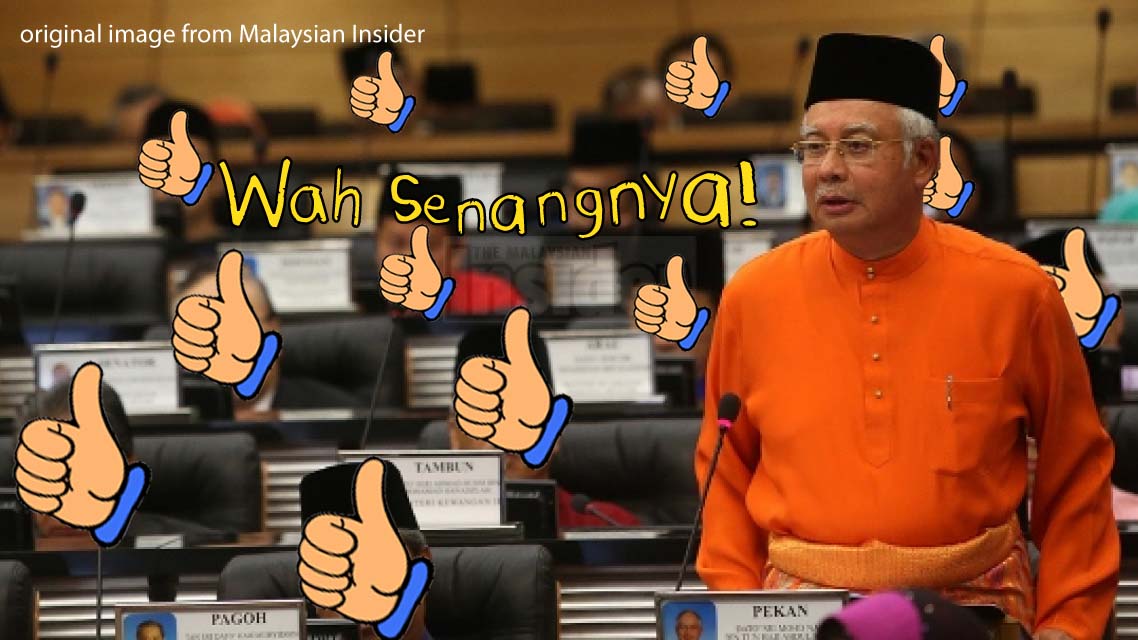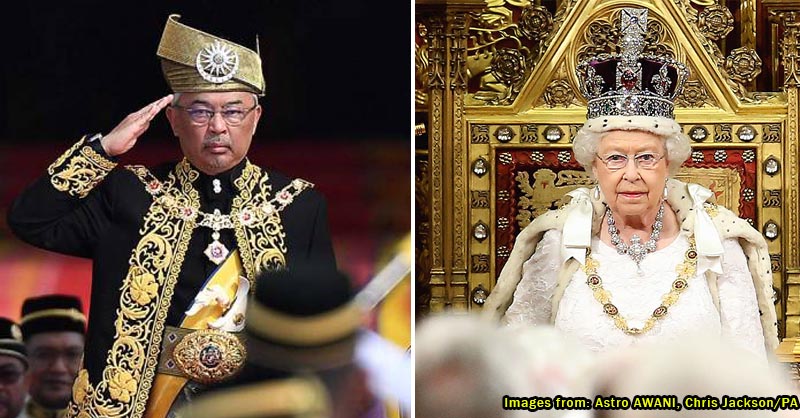Can a virtual Dewan Rakyat work? These Malaysians tried – by making their own parliament.

- 457Shares
- Facebook430
- Twitter8
- LinkedIn5
- Email4
- WhatsApp10
If you’ve been catching up with the news – because how can you not when you’re stuck at home with nothing to do – you might have come across a pretty long bout of headlines related to the latest Parliament session after the government’s abrupt change of hands from Pakatan Harapan (PH) to Perikatan Nasional (PN).
But just in case you didn’t know, the gist of it was that the PN administration announced a one-day Parliament sitting on the 18th of May, 2020, something that’s never heard of, in light of the Covid-19 pandemic. And well, it got a lot of people arguing about it, mostly from the opposition.
To the opposition, a one-day Parliament sitting was not feasible as they wouldn’t have enough time to debate and table new laws and bills. They further called for a virtual Parliament session to allay the challenges imposed upon them by the pandemic, but it was brushed aside by the administration. But if they had actually brought Parliament online, we imagine it would probably look something like the image above, but alas, the featured image is just something that we came up with ourselves to see how it’d look like.

However, it seemed that three youth groups – Challenger Malaysia, Undi 18, and Liga Rakyat Demokratik – are disagreeing with the government’s decision to hold Parliament for just one day.
These youth groups are now trying to prove that a virtual Parliament is possible
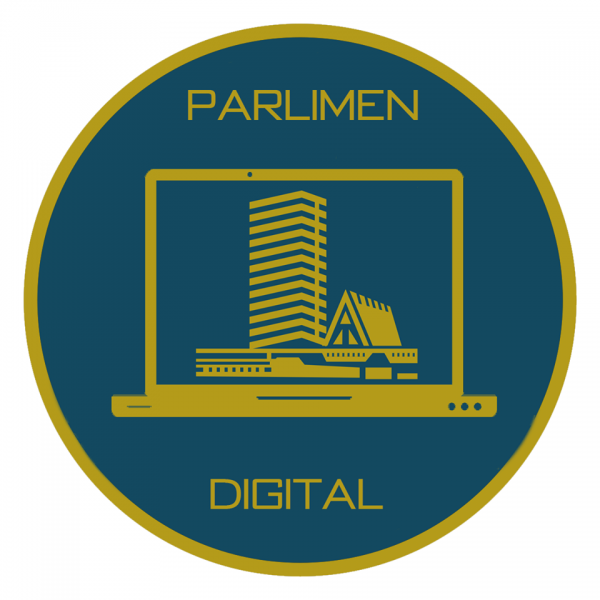
It may sound like a quirky and ambitious idea in the long run. How is an initiative made up of youth groups supposed to simulate a Parliament session themselves, much less do it online? Well, luckily for us, we managed to get in touch with Qyira Yusri from Undi 18, one of the organizers of Parlimen Digital, to learn more about the project.
To start with, the project’s called Parlimen Digital, and the idea is to put together a platform with 222 youths, the exact number of parliamentary members (MPs) in Dewan Rakyat, over a weekend to debate, discuss, and policies online – you know, like a Zoom meeting but with 222 people. They wanna show that a virtual parliament is possible, and that if they can do it, then so can the official Dewan Rakyat.
“The idea came about after the May Parliamentary sitting that consisted of just the King’s speech. We felt that it wasn’t fair for Malaysian citizens to not see our elected representatives debate and discuss national policies, especially when we consider the impact that the pandemic has had on the country.” – Qyira, in an interview with Cilisos
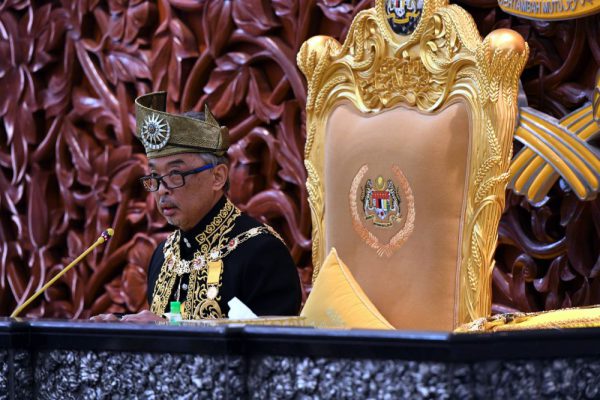
Yes, in case you missed it, the PN administration did go ahead with the one-day Parliament sitting on the 18th of March, and it only consisted of a speech made by Yang di-Pertuan Agong Al-Sultan Abdullah Ri’ayatuddin Al-Mustafa Billah Shah. During the session, YDPA Sultan Abdullah led a standing ovation for our frontliners, talked about the political crisis, and highlighted the importance of avoiding another crisis – then the whole thing was over.
As such, it drove Undi 18 to join forces with Challenger Malaysia and LRD to simulate a two-day parliamentary sitting online to prove that they can. These are all groups that are pretty politically active. For example, Undi 18 worked with former Youth Minister Syed Saddiq Syed Abdul Rahman to lower the voting age from 21 to 18, which was passed last July.
“While in the UK, or even fellow developing countries like Brazil have managed to attempt to continue lawmaking online using various tools, we are disheartened at the lack of agility this government has displayed in adapting to having a full parliament session during this time of global crises.” – Qyira
But of course, it’s not as simple as getting 222 people together and make pretend. To be able to show the government that such a thing is possible, they have to make it as authentic as possible, which can be difficult given that…
These groups aren’t even part of the government
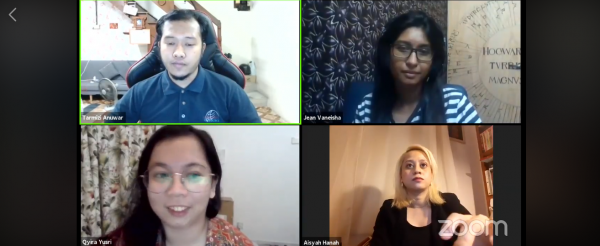
So without actual MPs or politicians, how are they supposed to run a Parliament session, albeit digital? Well, given that it’ll only be a simulation for now, Parlimen Digital actually invited any Malaysian between 15 and 35 years old to sign up as delegates who will discuss and debate policies when the time comes.
Now that the application deadline’s passed – sorry guys – the organizers are now in the process of selecting delegates – or representatives – which presents a difficulty in and of itself. According to Qyira, representation’s a priority in the delegate selection process, because they wanna make sure that all communities can have a voice, such as Orang Asli and women.
“Due to the fact that recruitment was done entirely online, it was challenging to target certain communities. However, we’re fairly confident that we can achieve the targets that we’ve set.” – Qyira
And the application itself wasn’t that easy, as we’ve learned that applicants had to submit a short essay to be admitted. So now, the organizers will determine which applicants should become delegates through a selection process based on their geographical location, application quality, and diversity representation.

And then what happens after these delegates have been selected and divided? Well, you may actually find that Parliamentary processes are pretty public, where you can find things like motion submissions, bill readings, debates, rebuttals, and the votes on the website itself – and that’s where Parlimen Digital will be getting information to model after.
“Mirroring the House as best as it can, the session will include speaker protocols, time limits for speeches, and a live feed to the public.” – Qyira
However, given that they’ll be conducting this mock session online, they have to adapt it that way as well, so Qyira told us that Parlimen Digital’s working with experts like former parliamentary researchers, academics, and law veterans to ensure their simulation stays as accurate as possible. Qyira also mentioned that they’re currently working with Microsoft to set up a special platform to host the delegates for the weekend event, alongside a team of technical volunteers to deal with any technical issues.
But would people really wanna participate in it? After all, some may think that they have better things to do on the weekends than play pretend. As it turns out…
Parlimen Digital received 5,775 registrations!

Uh, yeah – at least those are the statistics they gave us.
Among these 5,775 applicants…
- 1,327 applied to be delegates
- 2,742 submitted nominations for delegates
- 1,706 applied to be observers
Given that those who register have be between 15 and 35 years old, perhaps it’s time to rethink those comments saying that millennials or Gen-Zs – or as we in Cilisos like to call them, Zoomers – are lazy people who tend to ruin everything. Because if these statistics that Qyira gave us say anything, it’s probably that we actually do kinda care.
But really, why were there so many people applying to join Parlimen Digital? Fortunately, we also managed to contact two applicants, Jagdip Singh and Elizabeth Gerard, to find out. Do note that neither of them have yet to be officially selected yet though.
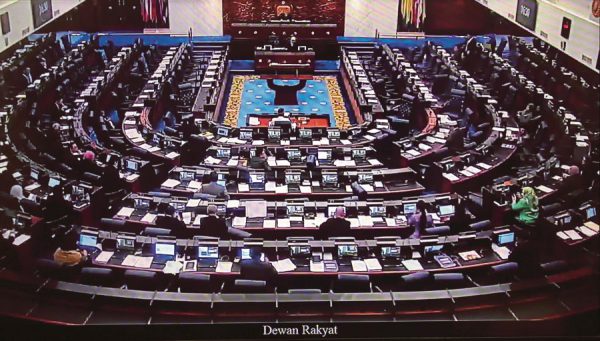
Jagdip told us that he learned about the project when someone tweeted about it on Twitter, piquing his interest, as he’s always had an interest in Parliamentary process since his youth. He was compelled to join because he wanted to be representative of the Sikh and Punjabi communities, which are considered minorities in Malaysia.
“Older me now respects the Supremacy of Parliament and the role it plays in a democratic society.” – Jagdip, in an interview with Cilisos
To him, he felt that it shouldn’t be impossible for our government to hold virtual parliament sessions, especially since the UK, from which we derived our own Parliamentary system, had also done it itself. Furthermore, he brought up the World Health Organization (WHO) online meeting that involved 500 participants in April, which is considerably larger than our Parliament.
As for Elizabeth, she unfortunately missed the deadline to apply for delegate, so she registered to be an observer. For her, she wanted to see how a novice initiative like Parlimen Digital could go and that it’s a great project for youths to get involved in and at least find their starting point in politics.
“If the organizers can pull this off, our government honestly has no other excuses. At a time when they are pushing us to remain innovative and productive using technological means, they should be the example instead of just ushering everyone along.” – Elizabeth, in an interview with Cilisos
You should know, though, this isn’t just a project to involve the youths and that’s it. At the end of the day…
The organizers plan to show the results to our Prime Minister
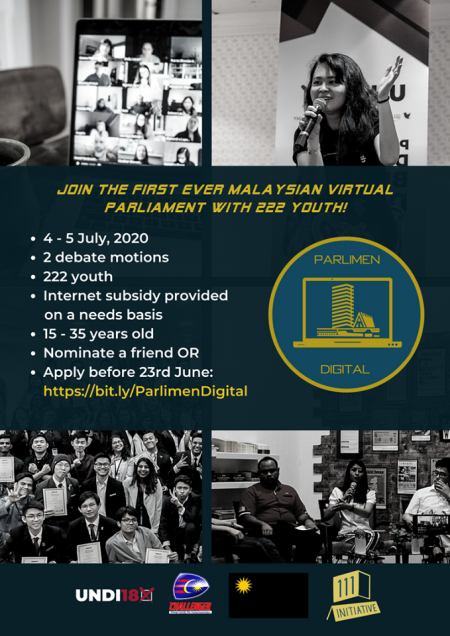
As we’ve mentioned above, Parlimen Digital’s endgame was to prove that hosting a virtual Parliament was possible, and they wanna be the ones to do it. And who better to help them carry it out than the younger generation, who’s inarguably the future of our country?
“I strongly believe that youth have a valuable perspective to add to policymaking. Whether you’re a child, teenager or a young professional, this pandemic has affected us all greatly. I think the question here shouldn’t be whether they can represent politicians, but whether can they represent Malaysia, their communities, and their struggles.” – Qyira
Qyira told us that once the virtual Parliament’s over, they will be compiling all their findings into a report and have it sent to the Prime Minister’s Office, Office of the Speaker of the House, and all political party heads. In addition, Parlimen Digital will be attaching something like a guideline on how to proceed with a Parliamentary session online to them as well.
So far, from what Qyira’s told us, it’s gonna be as similar to the real Dewan Rakyat as possible, where there’ll be a state leader like an MP, a state committee like an MP’s office, a Speaker of the House, and things like Order Papers and written responses. From the outset, the organizers of Parlimen Digital – Challenger Malaysia, Undi 18, and LRD – seem to know know what they’re doing in order to simulate a virtual Parliament as soon as possible.
But still, until it happens, we can only wait and see if it can be reality, which will be on the 4th and 5th of July, 2020. If you are interested in seeing how it goes, worry not, as Parlimen Digital will provide a live feed on their social media when the day comes. Or better yet, you can get involved yourself and register as an observer here!
- 457Shares
- Facebook430
- Twitter8
- LinkedIn5
- Email4
- WhatsApp10

